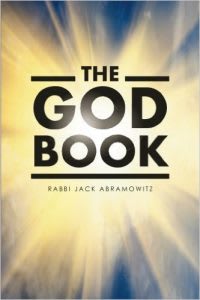2.1. God
With this entry, The God Papers begins with the Ramchal's classic work Derech Hashem. Source notes refer to that sefer.
-------------------------------------------------
Every Jew must strive to know that there's a God, who created everything. God has no beginning and He will have no end. He brought everything else into existence and He sustains it all. [I, 1.1] God's nature can only truly be understood by Him; created things, be they humans or angels, are incapable of grasping God, beyond the fact that He is perfect.
These things were passed by tradition from the Forefathers and the prophets. At Sinai, they were revealed and clarified to the entire Jewish people, so that they could teach them to their children. They can also be logically proven, by observing the wonders of nature. Sciences like physics and astronomy testify to these things. [I, 1.2]
God's existence is imperative; it is impossible for Him not to exist. [I, 1.3] Furthermore, His existence does not depend on anything else. [I, 1.4]
God's unity is absolute; He cannot be divided into parts. In a manner we cannot fully comprehend, He contains every type of perfection but they are not separate parts. Humans have many different parts, such as memory, imagination, desire, etc. These are all compartmentalized. God's aspects, however, are not compartmentalized. All the things He includes are not separate from one another, nor from Him. Since we start with the premise that we cannot truly understand the nature of God, we must accept that we cannot look at the way created things are in order to draw any conclusions about Him. [I, 1.5]
Aside from being indivisible, God's unity means that there cannot be another being whose existence is imperative. Only one perfect Being can exist and be the cause of everything else. Since other things require God in order to exist, their existence cannot be said to be imperative.
In short, here's what we know about God: (1) He exists; (2) He is perfect; (3) He must exist; (4) He requires nothing else in order to exist; (5) He cannot be subdivided into parts; (6) There is no other comparable being. [I, 1.6]
The God Book – now available from OU Press!

